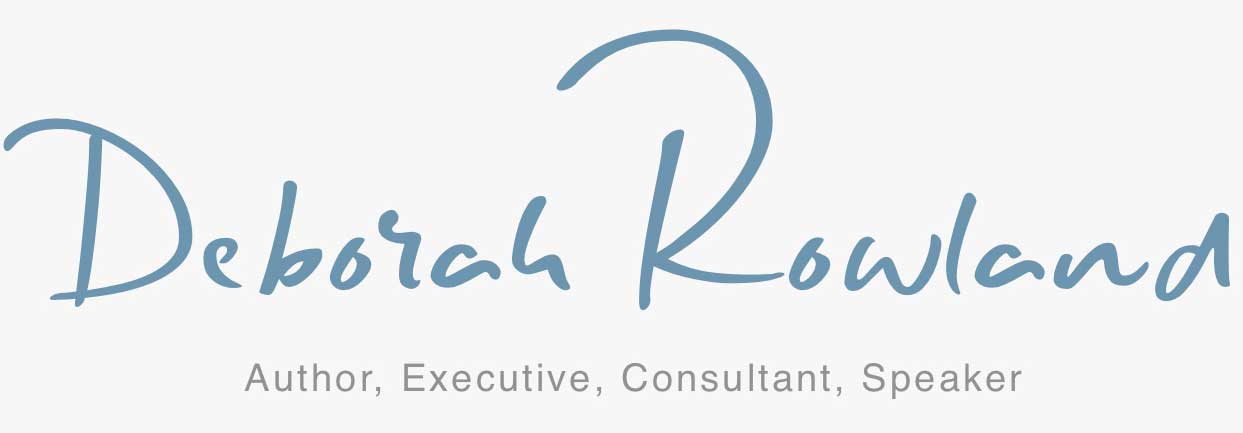Liverpool - Q & A 30th Oct - 1 Nov
We were lucky enough to grab some time with Deborah Rowland before her keynote speech at this year's Leaders in Healthcare. We asked about her path to leadership and what we can expect from Deborah at Leaders in Healthcare.
How did you start down the path to leadership?
An undergraduate degree in anthropology sparked my lifelong curiosity about human communities and how they can thrive and flourish in changing contexts. Through an early work experience with an eminent organisational behaviour scientist my attention shifted to the massive influence leaders have on organisational climate and workplace productivity.
I then tried it out myself! Entered the corporate world in companies such as PepsiCo and Shell, finding myself increasingly in leadership roles, most often, within rapidly changing environments. I won’t bore you with any further CV information but today, 30yrs on, I look back appreciatively to those early formative experiences in anthropology and behavioural science.
I’ve heard it said that, ‘the purpose of anthropology is to make the world safe for human difference’. And, I still believe today that a central task of leadership is to create safe spaces in which diverse talents come together to do amazing work for the benefit of a wider world.
What qualities define a good leader?
I have studied and (not always wisely) exercised leadership for three decades. Good leadership remains an elusive subject. And, of course, it is situational – different contexts call for different leadership qualities. Perhaps that is one of the greatest qualities. Good leaders can ‘tune into the system’ that they lead, sense its needs and dynamics and respond to that intentionally and wisely. Leaders therefore need to remain mindful and alert – both to themselves and the wider system – and not just run through the day in ‘autopilot’ mode.
I have created a leadership framework, Still Moving, grounded in my research and practice, which posits that leaders who thrive in today’s challenging and disruptive world are able to master two interrelated skills sets: their inner quality of being, a sense of stillness; and their external quality of doing, how they skilfully create movement in their teams and organisations. And, guess what, I found that it all begins in your inner game. If leaders cannot be present to notice and regulate their own emotional and mental response to experience, they will stay stuck in habitual routine.
Leadership is about putting your knowledge to the background and your presence to the foreground.
What do healthcare leaders need to do better?
Gosh, I am certainly in no position to be able to answer this question! And, I am looking forward to learning more at your conference about your challenges and development needs.
What I do know is that a lot of leaders ask me the question above. And, I always find that the question needs to move ‘upstream’, to, ‘how do leaders need to be better?’ In other words, to improve what you do (which in today’s world is usually about handling ongoing change, managing multiple priorities and stakeholders, being able to respond to a new world of disruptive technology and collapsing hierarchies) you first must attend to your quality of being – that inner resource we all possess, and from which our whole quality of action springs.
I can only imagine that in your pressurised high risk/stress environment, that it must be challenging to stop, pause, notice, breathe, and tune into what’s going on inside you. Yet, as T.S. Elliott says, ‘at the still point of the turning world, there the dance is’.
What can healthcare leaders learn from your industry?
I work across multiple industries. So again, a tricky question! The industries I am drawn to however all seem to be what are called, ‘complex adaptive systems’ – characterised by having multiple constituent agents (complex), within continually changing contexts (adaptive), yet tasked with working towards a common purpose (a system).
What I do know about how these so called complex adaptive systems thrive, and can continually innovate of their own accord (without the need for heavy engineered top down change), is that they possess an equal balance of forces for stability and disruption. Too much stability – you get stuck and outdated. Too much disruption – you get panic and collapse.
It’s fascinating, but I’ve found that leaders in these environments who can both promote enduring purpose and psychological safety, alongside being able to confront and disturb repeating unhelpful patterns, are able to lead more effortless change.
What can we expect from your talk at Leaders in Healthcare?
Hopefully, I will bring some deep insights into the nature of successful leadership in today’s environment, based on both rigorous research and practical experience of leading large complex change. Insights that can translate into tangible action for you back in the workplace.
Given my talk is the last of the conference, I also hope to be able to weave together themes from the event and provide my own sense of what’s needed next for Leaders in Healthcare.
Ultimately, I hope you leave with a mind expanded, a heart touched, and your hands itching to take some steps towards more effective leadership.


